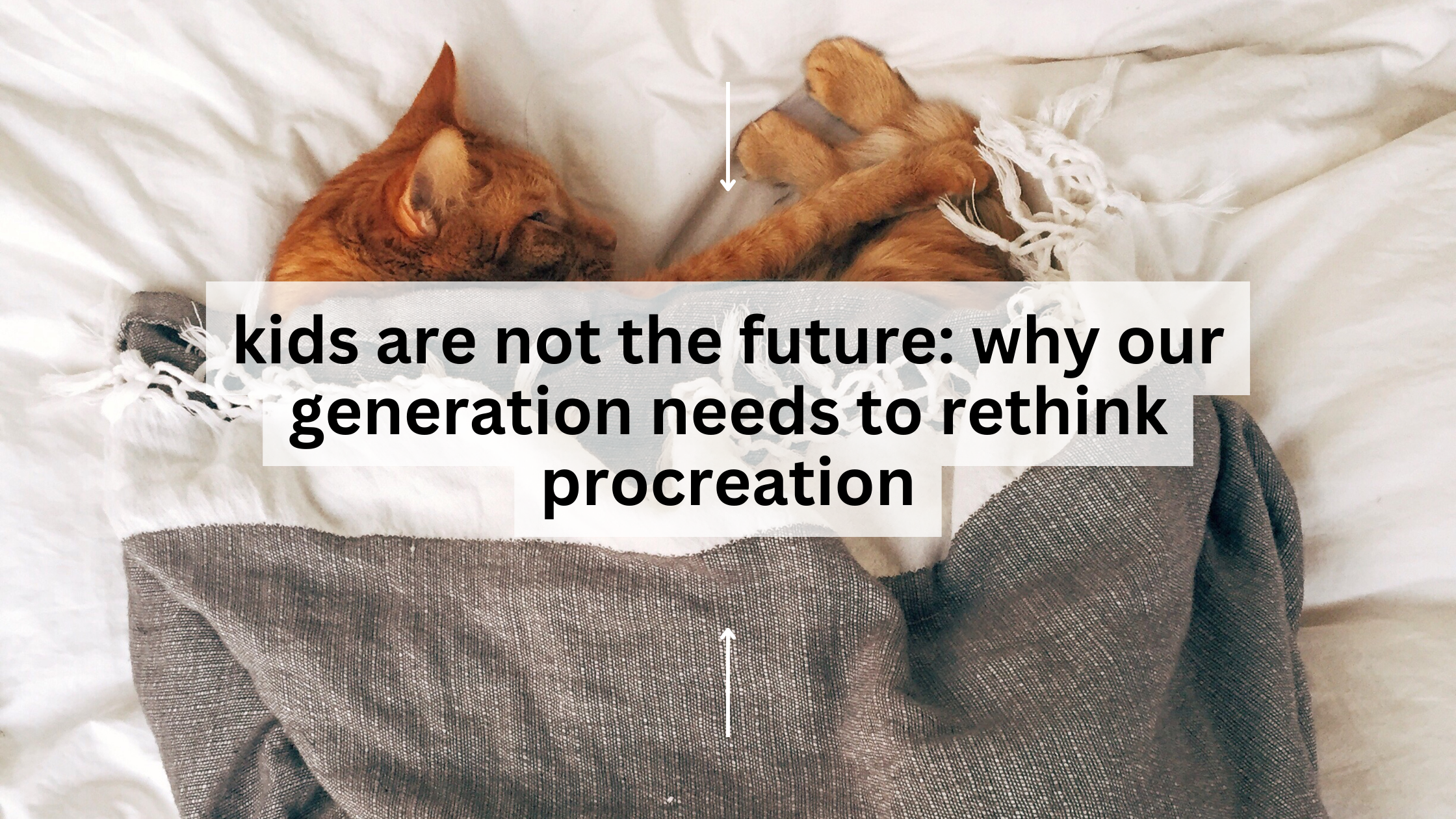let’s get real. the pressure to have kids is overwhelming, yet, we need to question if it’s truly the only path to a meaningful life. it’s time to challenge the deeply ingrained notion that having children is the ultimate goal.
in this blog, i’ll lay out why opting out of parenthood can be a perfectly valid, even preferable choice, and why the idea that kids are the future is not the only way to secure a fulfilling & impactful life.
the myth of joy-filled parenthood
you’ve heard it before: “kids bring so much joy.” but let’s dissect this fairy tale. research shows that the happiness parents anticipate from having kids is often idealized, a way to justify the enormous sacrifices made (Psychological Science).
historically, kids added economic value to families, working on farms or bringing in paychecks. today, they’re more likely to drain your finances and sanity (Psychological Science).
the joy of parenthood? it’s a myth fed to us by a society that romanticizes the struggle while ignoring the harsh realities.
procreation isn’t a moral obligation
society paints childfree individuals as selfish, but let’s flip the script. choosing not to have kids can be a conscious, responsible decision. overpopulation is a significant concern, contributing to environmental degradation and resource depletion (Pew Research Center).
opting out of procreation means reducing your carbon footprint, giving more attention to societal issues, and investing in sustainable futures.
personal fulfillment beyond parenthood
fulfillment doesn’t hinge on producing offspring. many childfree individuals find deep satisfaction in careers, hobbies, travel, and relationships. being childfree opens up time and resources to pursue passions and contribute to the community in meaningful ways (Girls Gone Strong) (Pew Research Center).
you can mentor, volunteer, and support causes you care about without the constant demands of parenting.
the societal shift towards childfree lifestyles
recent surveys reveal a growing trend: more people are choosing to remain childfree by choice. concerns range from financial stability to personal freedom, and even doubts about bringing children into an uncertain world (Pew Research Center) (Psychology Today).
this shift isn’t just a fad; it’s a recognition that a fulfilled life doesn’t necessitate children.
economic freedom and mental health
let’s talk money. kids are expensive. from diapers to college funds, the financial burden is staggering. choosing to remain childfree can mean financial stability and freedom to invest in your future.
it also significantly reduces stress. studies show that childfree adults often experience lower levels of anxiety and depression compared to parents (PositivePsychology.com) (Psychology Today).
the freedom to be yourself
being childfree allows you to maintain your identity and independence. you’re not tied down by the demands of parenting, giving you the freedom to explore, grow, and evolve on your own terms. it’s about living authentically, without societal pressures dictating your life choices.
breaking the cycle of societal expectations
societal expectations around parenthood are deeply rooted, but they’re not unchangeable. by choosing a childfree lifestyle, you’re challenging norms and encouraging others to question their decisions. it’s about creating a society where everyone feels empowered to make choices that are right for them, not just the ones that are expected (Girls Gone Strong).
rethinking the future: a childfree perspective
kids are not the future—we are.
our generation has the power to redefine what it means to live a meaningful and impactful life. choosing to be childfree by choice isn’t selfish— it’s a thoughtful, deliberate decision to live authentically and sustainably.
it’s time to rethink procreation and embrace a future where fulfillment comes from personal growth, community involvement, and a sustainable approach to living.


Leave a Reply